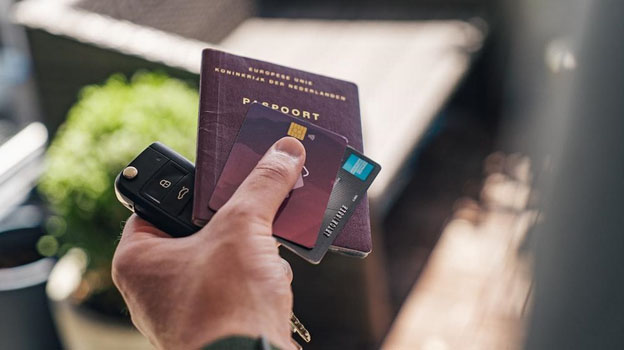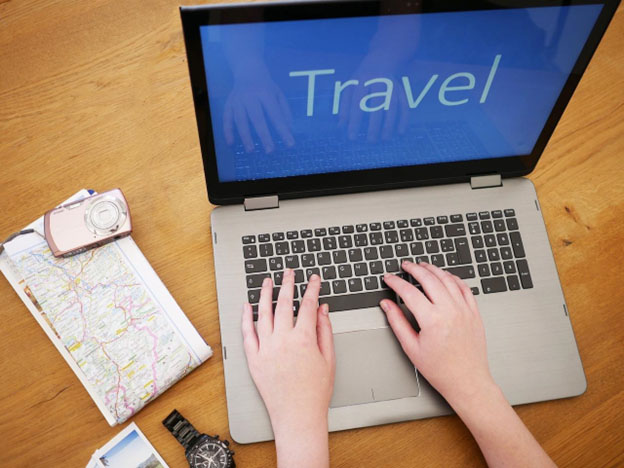From A to Z: Detailed Guide on Car Rentals in Australia

Many travellers dream of investigating beautiful landscapes, famous landmarks, and bustling cities of Australia. Some of them decide to use local transport to move around. Others opt for car rental services to be independent during outings. If you belong to the second category and want to enjoy freedom and flexibility to the fullest, it is paramount to understand the basics of car rental policies in the country. In this article, the topic is broached in detail.
The Knack of Selecting a Good Car
When planning a trip across Australia, choose a reliable and comfortable four-wheel companion. Define how many people you are going to travel with. For a large company, you may go for a 7 seater car hire or a campervan. For a family of 3-4 people, pick a SUV from a credible car hire provider. If you are embarking on the road with your partner only, flick through compact and mid-size cars for hire Australia. Another thing to keep in mind is the location you are going to traverse. Australia has diverse landscapes. If you move through urban escapades or have short drives, prefer compact cars because they:
- are easier to manoeuvre and park
- consume less fuel
- typically costs less to rent
- produce lower emissions, which is important for environment-conscious drivers
- are quicker to get used to, especially for beginner drivers
When venturing into rugged terrains, an SUV is your go-to vehicle. Such cars are particularly suitable for off-road travelling as they:
- feature higher ground clearance, robust suspension systems, and four-wheel drive or all-wheel drive
- provide better traction and stability
- adapt to different environments easily
- have ample cargo space
- offer elevated seating position allowing one to see a road and surrounding areas better
- can withstand rough usage and harsh conditions
Travellers on the lookout for a versatile vehicle for driving in Australia and arranging a temporary accommodation should favour campervans. Mobile homes on wheels appeal to tourists due to:
- dedicated sleeping areas, a kitchenette, and even bathroom facilities
- the possibility of getting closer to nature during camping
- lower expenses, eliminating the need to book a room in a hotel separately
- freedom to explore various destinations without being tied to fixed residency
Nitty-gritty of Rental Policies
After selecting a car, familiarize yourself with Australian rental policies – regulations and restrictions. The most important aspect to consider is the car hire age limit in Australia. Currently, you have to be at least 21 years old to be allowed to rent a car. Some providers may follow other regulations in terms of age, so reach them out directly to learn. But usually, car hire for 19 year olds in Australia is out of the question.
One more regulation tied to the age of drivers is a surcharge. Generally, drivers under 25, are considered less experienced than older carmen. That’s why, they are obliged to pay a young driver surcharge. The fee is approximately AUD 23.50 per day. Besides, drivers aged 21-24 may be forbidden to rent some types of cars, namely, luxury ones. Once again, elaborate on this point with a provider you are going to rent from. The regulation applied to all drivers is that they must have a license for at least one year.
As for insurance options, there are several variants:
- Collision Damage Waiver or Loss Damage Waiver – standard insurance coverage when renting a vehicle. A driver has to reimburse a particular sum if a rented car is lost/damaged. The rental company is responsible for the remaining expenses.
- Excess Reduction Insurance is optional yet advisable coverage for renters. A driver must pay only a specific sum if a car is lost or damaged.
- Third-Party Liability Insurance covers expenses you’ll have to compensate if you cause damage to other people or their property.
- Personal Accident Insurance is a financial protection in case you or any of your passengers are injured or die because of an accident when driving a rented car.
- Personal Effects Coverage implies you’ll be indemnified if your personal stuff is damaged, lost, or stolen from a rented vehicle.
In general, some insurance policies are obligatory while others are optional. You may be tempted to buy the compulsory minimum and get along without extras. However, you never know what may happen, so purchase some additional options to be on the safe side. Besides, providers may offer a large set of insurance coverages at a lower cost.
Online vs Offline Car Rental

The possibility of finding a suitable car online and booking it in minutes has totally overhauled the way people are traveling these days. Now agreeing upon a car hire for 7 passengers, a cosy coupe car, or any other vehicle boils down to clicking a single button. Online booking is not only time-efficient but also pocket-friendly. Rental companies frequently offer discounts for online deals, which may be missing in brick-and-mortar counters.
Still, some people are unrelenting exponents of in-person reservations. They like talking to rental staff, asking questions, and getting quick answers. Besides, when on the spot, they have a chance to scrutinize a car in real life and decide whether it meets their demands and preferences. No matter what variant strikes a chord with you, follow these recommendations to get the most positive experience:
- Book in advance to receive early booking discounts.
- Compare costs between car rental providers to find the best price car hire Australia.
- The costs of car rental are usually higher during holidays, so you may get a cheaper offer if you travel in other periods of the year.
- Check out whether you qualify for membership programs, frequent flyer offers, or credit card partnerships.
- Before confirming your car rental, review the policies. Pay special attention to cancellation fees, fuel expenses, age restrictions, and mileage limits.
Pricing & Hidden Fees
No wonder you covet to see the beauty of Australia without spending eye-watering sums. Fortunately, doing that is a breeze with smart planning and careful consideration of prices. As a rule, when renting a car, you have to cover the base rate. But there may also be extra taxes and airport surcharges are
The base rate is usually the major sum paid when renting a vehicle. Learn it from a provider straight away or see it in an online catalogue. In addition, there are various taxes. For instance, you may have to pay premium location fees, if you are heading to the territory that is considered “premium”. These are usually airports or famous tourist attractions. The amount can go as high as 30%. Besides, you should add airport surcharges to your overall expenses. This is the sum charged when a driver picks up or drops off a rented car at airport locations. The amount differs based on the company’s policy and airport location. Hidden fees usually encompass payments for an embedded GPS navigation system, a child seat, or an additional driver. To minimize or totally avoid them, use a GPS app on your phone, bring your own child seat, etc. Fuel policies can also ramp up your expenses. Some companies give clients vehicles completely fuelled and want them to return a car with a full tank. There are also agencies that stick to a “full-to-empty” policy. It means you have to pay in advance for a full tank. Negotiate this point with your provider.
Navigating Australian Roads

Australia has specific traffic norms that may confuse drivers from other countries. The most important rule is that driving should be on the left side of the road. The vehicle overtake is done on the right side. Always learn and revise the traffic rules before starting your trip.
Besides, every state and territory in the country has unique regulations drivers have to follow. For instance, there are different speed limits across Australia. In the Northern Territory, posted speed limits are 130km/h. In Western Australia, they are 110km/h. In built-up areas such values are lower, so pay attention to road signs all the time. In addition, drivers have to abide by seat belt laws. Otherwise, they may have to pay hefty fines.
For peace of mind when exploring Australia, adhere to these tips:
- Memorise specific road rules of the state or territory you plan to visit.
- Find sufficient rest stops along your planned route to have respite and feel energized when driving.
- Keep abreast of weather conditions and any road closures before you set out.
Safety and Emergency Procedures
Safety is crucial when on the road. For a long term car hire Australia and visits to distant places with rough terrain, you should question a provider about the different safety features available in a vehicle. Modern cars are packed with different options to ensure the well-being and comfort of divorcer and passengers. They have:
- Airbags
- Anti-lock braking system
- Electronic stability mechanism
- Traction controller
- Auto emergency brakes
- Lane-keeping assist
- Customizable cruise control
- Rear-view cameras
- Tire pressure tracker
- Pedestrian detection
Take your time to test these features. When you know all the mechanisms in a vehicle, you will be able to immediately leverage them when needed. If an accident happens, try to be cold-headed and take these steps:
- Make sure all parties involved are safe. If possible, move to a safer location and turn on the hazard lights.
- Check whether anybody is injured. If yes, call emergency services.
- Exchange contact and insurance information with the other driver. Take photos of the scene and any damages to a rented car.
- Inform the rental company about the accident promptly.
If your rented car has broken, you need to:
- Move the car off the road if possible.
- Turn on hazard lights.
- Contact the rental company. Experts will give you further guidelines.
For an emergency help, dial 000.
Returning a Rented Car
Once your journey is over, you have to return a vehicle. But before handing back the keys, inspect the car. Scrutinize it for any damages or discrepancies. Pay attention to the internal space and the outside of the vehicle. If you notice something strange, snap a photo. One of the best car hire tips from seasoned travellers is to photograph a car before and after your trip. Thus, you will avoid any possible misunderstandings and unfair charges.
If you agree to return a car with a full tank, refill the fuel to the needed level. Moreover, be punctual. Check out the company’s working hours and drive the car back on time. Otherwise, you will have to pay late fees. The same applies to the return location. You need to negotiate this topic when renting a car, so you clearly understand where the designation spot is. It happens that companies charge extra if clients leave a car in a different location.
Be accurate with documents. You should have your driver’s license and a rental agreement at hand. Besides, collect all receipts during your journey just in case.
If a rental provider imposes post-rental charges you haven’t discussed before and ones you disagree with, you should:
- Review the final invoice provided by the rental company very carefully. Be extra attentive with fuel charges, late fees, or any damages outlined.
- If you documented the condition of a car before your trip, use these records. These can be photos, notes, or any pre-existing damage reports. Such materials are invaluable if any disputes arise.
- Reach out to the customer support of the rental company. Ask them to clarify any questionable charges. Be polite but determined.
- If you believe you are wrongly charged, provide evidence to support your claims.
- Request a detailed breakdown of the charges. Thus, you can grasp how each fee is calculated.
- If they didn’t address your concerns adequately, leave a review. Describe your experience and warn other travellers.
|